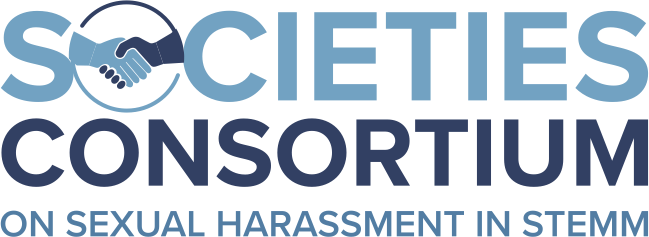June 4th, 2020

The Societies Consortium on Sexual Harassment in STEMM held a virtual conference on May 21st entitled “Effective Approaches to Adopting Inclusive Conduct and Honors Policies”. While virtual meetings have the potential to faciliate access for some people, they can also create additional complications for vulnerable groups. In some cases, proper measures and sensitivity can address these barriers. Interacting in cyberspace is known to elicit a different set of behaviors than in person. The panel shared resources and ideas, and also worked collaboratively with attendees to get a variety of perspectives on how to conference inclusively. FABBS is a member of the Consortium, and by extension, these resources are available to FABBS members.
Billy M. Williams, Senior Vice President of Ethics, Diversity and Inclusion at The American Geophysical Union (AGU), led the discussion, providing an optimistic outlook on the present situation, noting how teleconferencing has benefitted those who previously could not attend meetings due to travel cost. Dr. Williams outlined a few basic etiquettes, such as timeliness and being fully present in meetings, and reminded participants of possible liabilities associated with online meetings — online chats are never fully private and always assume that one’s camera is on. He provided a list of online resources (replicated below), and transitioned to the topic of establishing online identity, which has become a controversial topic as uninvited listeners have been known to infiltrate meetings. Williams qualified this concern, pointing out that the ambiguity of online identity can protect those who do not feel comfortable revealing who they are. The ability of establishing a clear online identity also allows people who fear being misidentified to share their pronouns alongside their name.
Marcia Lesky, Senior Director of Diversity, Inclusion & Volunteer Cultivation at The Optical Society, continued the discussion by suggesting a system of telework in which registration for meetings is required and links to the meetings are kept private. She emphasized the importance of maintaining structure and professionalism online, and encouraged thoughtfully planning meetings including thirty minute practice sessions. Felice Levine, Executive Director at The American Educational Research Association, a FABBS member society, added that while professionalism must continue, meetings must cater to the humanity of attendees through check-ins, breaks, and a willingness to reschedule.
Resources:
- AGU Ethics and Equity Center: Best Practices for Inclusive Remote Meetings
- 500 Women Scientists: Guide to Organizing Inclusive Scientific Meetings
- Societies Consortium: Compendium of Existing Resources
- Societies Consortium Easy Reference Policy: Virtual Meetings Conduct Policy (available to members)
- Societies Consortium Easy Reference Guide: Virtual Meetings Participant Guide (available to members)